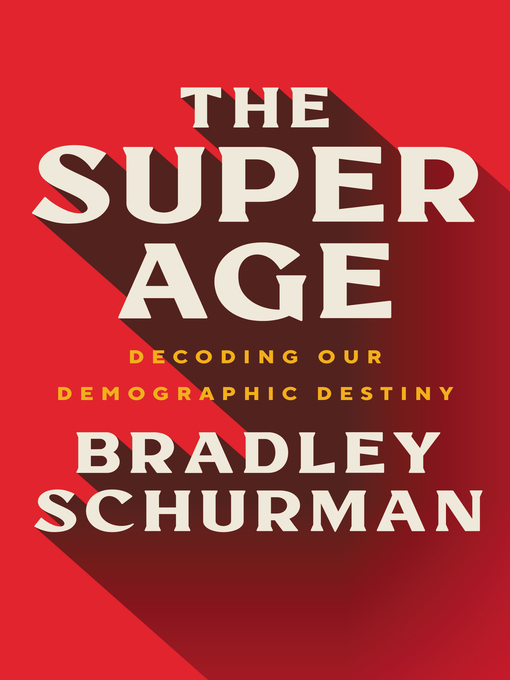A demographic futurist explains the coming Super Age—when there will be more people older than sixty-five than those under the age of eighteen—and explores what it could mean for our collective future.
Societies all over the world are getting older, the result of the fact that we are living longer and having fewer children. At some point in the near future, much of the developed world will have at least twenty percent of their national populations over the age of sixty-five. Bradley Schurman calls this the Super Age. Today, Italy, Japan, and Germany have already reached the Super Age, and another ten countries will have gone over the tipping point in 2021. Thirty-five countries will be part of this club by the end of the decade. This seismic shift in the world population can portend a period of tremendous growth—or leave swaths of us behind.
Schurman explains how changing demographics will affect government and business and touch all of our lives. Fewer people working and paying income taxes, due to outdated employment and retirement practices, could mean less money feeding popular programs such as Social Security and Medicare—with greater numbers relying on them. The forced retirement or redundancy of older workers could impact business by creating a shortage of workers, which would likely drive wages up and result in inflation. Corporations, too, must rethink marketing strategies—older consumers are already purchasing the majority of new cars, and they are a growing and vitally important market for health technologies and housing. Architects and designers must re-create homes and communities that are more inclusive of people of all ages and abilities.
If we aren't prepared for the changes to come, Schurman warns, we face economic stagnation, increased isolation of at-risk populations, and accelerated decline of rural communities. Instead, we can plan now to harness the benefits of the Super Age: extended and healthier lives, more generational cooperation at work and home, and new markets and products to explore. The choice is ours to make.


